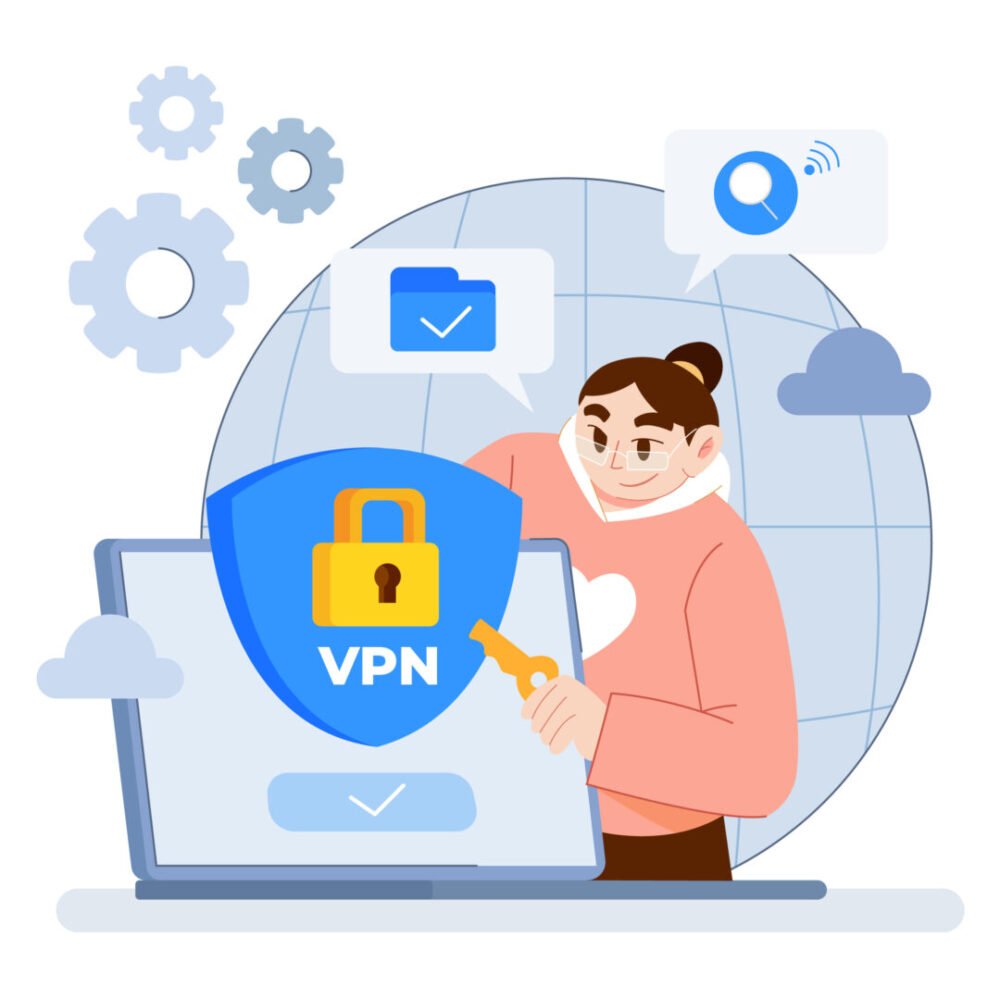Is a VPN Right for You?
- November 16, 2022
- by
- Xavi
A VPN, or virtual private network, can be a great way to secure your internet connection and protect your online privacy. But what is a VPN, and how do you know if it’s right for you?
A VPN is a private network that uses public infrastructure (like the internet) to provide remote access to its users. A VPN can encrypt data traffic between two devices or tunnel data traffic through an intermediary server.
There are many reasons why you might want to use a VPN. For example, a VPN can help keep your data safe from prying eyes if you’re concerned about online security and privacy. Or, if you’re traveling overseas and want to access content that might be blocked in your country, a VPN can help you bypass those restrictions.
What is a VPN?
A VPN, or virtual private network, is a secure tunnel between your device and the internet. You can improve your online privacy and security by routing your traffic through a VPN server. A VPN can also help you access websites and content blocked in your country.
Whether or not a VPN is right for you depends on your needs. If you’re concerned about online privacy, a VPN can help keep your data safe from hackers and government surveillance. If you’re looking to access blocked content, a VPN can help you bypass internet censorship. However, VPNs can slow down your internet connection, and some cost money to use.
How a VPN Can Benefit You?
A VPN may be right for you if you’re looking for a way to improve your online privacy. A VPN can help encrypt traffic and hide activity from your ISP. Additionally, a VPN can allow you to access geo-blocked content and bypass government censorship. Here are some additional benefits of using a VPN:
A VPN can help protect your online privacy by hiding your activity from your ISP. ISPs can track your browsing habits and sell this data to advertisers. Using a VPN, your traffic is encrypted, and your ISP cannot see what you’re doing online.
A VPN can also allow you to access geo-blocked content. If you’re trying to access content only available in another country, a VPN can help you bypass government censorship and reach the site you’re trying to visit.
The Different Types of VPNs
There are many different types of VPNs, each with its features and benefits. The most common type of VPN is the remote-access VPN, which allows users to connect to a private network remotely. A remote-access VPN can be either user-friendly and easy to set up or more complex, depending on the organization’s needs.
Another common type of VPN is the site-to-site VPN, which connects two or more private networks. Businesses often use site-to-site VPNs with multiple locations or organizations that need to join their network to a partner’s network.
Lastly, there is the mobile VPN, designed for users who need to connect to a private network while on the go.
Which One is Right for You?
A virtual private network (VPN) can be a great way to add an extra layer of security to your online activity. But which one is right for you?
It would be best to consider a few things when choosing a VPN, such as whether you want a free or paid service, how much data you need, and what level of security you need.
If you’re looking for a basic level of security and privacy, a free VPN might be the right choice. However, if you need more features and protection, you may want to opt for a paid VPN service.
Ultimately, the best VPN for you is the one that meets your specific needs. So take some time researching your options and finding the perfect VPN for your needs.
Setting Up a VPN
If you’ve ever worked from home, you know the drill. The coffee’s on, the kids are (finally) in school, and you’re ready to get down to business. But then you remember: the office VPN is down. So is the company website. And your work email isn’t loading. Suddenly, that work-from-home day isn’t looking so hot anymore.
If this sounds familiar, you might need a VPN. A VPN is a private network that allows you to connect to the internet securely and privately. That means your data is encrypted, and your IP address is hidden. A VPN can also help you access blocked websites and content.
So how do you set up a VPN? First, you’ll need to choose a provider. There are many different options, so be sure to do your research before settling on one.
Conclusion
If you’ve been looking into getting a VPN, you might wonder if it’s right for you. Here’s a quick overview of what a VPN is and what it can do for you.
A VPN, or virtual private network, is a type of security software that encrypts your internet traffic and routes it through a server in another location. This makes it difficult for anyone to track or intercept your traffic, including your ISP, the government, or hackers.
There are many reasons to use a VPN, including protecting your privacy, unblocking websites, and improving public Wi-Fi security. However, VPNs can also slow down your internet connection and may not work with all websites and services.
So, is a VPN right for you? It depends on your needs.





